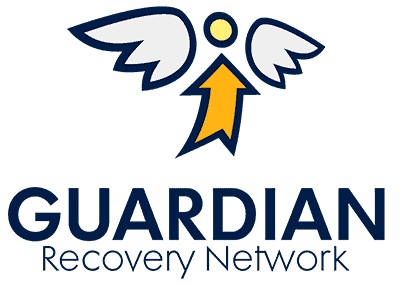Motivation Stage

What is addressed?
- Fully understanding one’s condition as an addict or alcoholic
- Learning tools for regulating emotions
- Changing negative thought patterns
- Breaking destructive cycles of behavior
- Beginning to heal past traumas
How long is the Motivation Stage?
A client’s duration in this phase is based on what is deemed clinically appropriate by professional staff. Typically it is 28-60 days.
Goals
- Find hope for recovery
- Recognize negative patterns of behavior & thoughts
- Learn tools to transform our behaviors & thoughts
- Build a sense of community with other clients
- Begin healing past emotional wounds
What Services?
Motivation Stage Summarized
The motivation stage is all about self-awareness and healing. Clients understand fully what addiction is and why recovery is vital. They admit that without help, they are overpowered by their addiction and doomed to repeat it if they don’t utilize the recovery tools they will learn. As they are exposed more and more to recovery, and other recovering individuals, they begin to believe that there is hope — that their life can improve.
Clients begin examining what might be blocking them from the life they desire. They start to identify negative thought patterns, destructive cycles of behaviors and false beliefs that are holding them back from experiencing the joys of recovery. Clients start to see their own defects of character and acknowledge where they’ve played a part in their past troubles. They see how change is possible if they follow the recovery path. Many of our clients have been to treatment or attempted recovery before. For those clients, this stage works to identify the reasons the client previously failed to maintain long-term sobriety and identifies potential pitfalls.
Our clients also start the process of re-establishing healthy relationships with loved ones and the outside world. They participate in family therapy and begin to build sober support networks. They are given increasing exposure to local peer-support communities (AA, NA, Smart Recovery). Clients begin daily implementation of long-term recovery practices such as prayer, meditation, daily inventory and mindfulness exercises.
THE PROCESS
The second stage of the Guardian Path is all about motivation and healing. The second stage progresses individuals through residential inpatient and partial hospitalization, which both utilize comprehensive therapy and holistic practices to advance each individual’s recovery process.
1) Residential Inpatient
The services we provide as part of our residential inpatient programs include:
- Individual therapy that takes place at least once a week, and group therapy that takes place on a daily basis
- Family therapy whenever possible, as well as family workshops and other family-oriented services
- Homestyle retreat facilities equipped with amenities geared towards client comfort, including private and semi-private bedrooms, well-appointed common areas, on-site meeting rooms and yoga studios, state-of-the-art kitchens and more
- A variety of holistic treatment practices, including acupuncture, yoga, nutrition therapy and mindfulness meditation
- Educational classes on topics related to addiction and recovery; for example, classes on the Disease Model of Addiction or relapse prevention
- Life skills workshops that focus on the skills needed to manage life sober
- Optional 12-step program involvement, immersion and education
- A wide array of outdoor and recreational activities geared towards teaching clients how to have fun while living a sober lifestyle
2) Partial Hospitalization Program (PHP)
The services provided in our PHP programs include:
- Group therapy that takes place on a daily or near daily, basis
- Individual therapy at least once a week
- Family therapy and other family-oriented services
- Holistic treatment options
- Relapse prevention training
- Life skills training
- Case management services
- Optional 12 step program education and immersion
Comprehensive Therapy
At Guardian Recovery we believe that intensive therapeutic intervention is an essential part of every single stage of the recovery process. We offer individual, group and family therapy, utilizing a range of proven techniques.
The therapeutic techniques we employ include:
Cognitive Behavioral Therapy (CBT) – CBT is a highly effective and commonly employed therapeutic method that focuses on re-framing negative patterns of thinking and behaving.
Dialectical Behavioral Therapy (DBT) – DBT is a type of CBT that focuses on helping clients live in the present moment while developing healthy and functional relationships and communicating more effectively.
Eye Movement Desensitization and Reprocessing (EMDR) – This therapeutic method, which utilizes vibrating handholds and flashing lights to stimulate the connection between the two hemispheres of the brain, is especially beneficial for men and women who have been suffering from deep-seated, unresolved trauma.
Motivational Interviewing (MI) – This method of therapy helps clients gain the motivation they need to stay sober long-term.
Recreational therapy – We offer numerous types of recreational/outdoor therapy depending on the treatment setting. Recreational activities range from hiking the Great White Mountains to kayaking in the warm waters of Southern Florida.
Holistic Therapies – We offer a range of holistic therapies geared towards improving the mind-body connection and facilitating spiritual healing. These include yoga, mindfulness meditation and acupuncture.
Nutrition therapy – At Guardian Recovery we believe that nutrition and addiction recovery are closely linked. We have licensed nutritionists on staff who teach our clients which food choices facilitate healing, while teaching them how to shop for and prepare food for themselves.
Experiential therapy – This therapeutic method classifies hands-on activities, such as psychodrama, art therapy and music therapy. It can be difficult for clients to process uncomfortable emotions or traumatic past events in traditional talk therapy, which is why this method often comes into play.
Holistic Healing
Holistic healing practices we utilize:
To learn more about the therapeutic and holistic services we provide, or to learn more about the residential inpatient and partial hospitalization portions of our program, contact us today. Our team of compassionate Treatment Advisors are available 24/7 to help answer all your questions.Get Started Now
Give us a call 24/7


